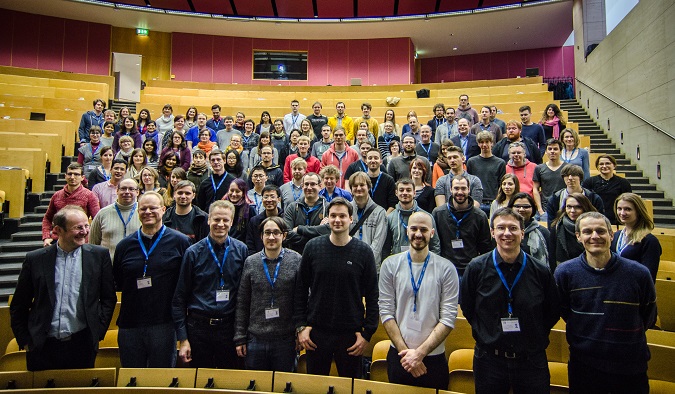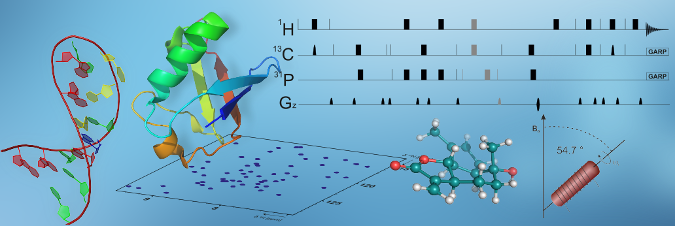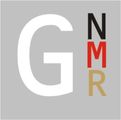Announcement
G-NMR School, 29.02. - 4.3.2016
Goethe-University Frankfurt
Campus Riedberg, N100 (B1 - B3)
Max-von-Laue-Str. 9
60438 Frankfurt
Introduction
From February 29th to March 4th 2016, the 2nd G-NMR school will be held at the Goethe-University in Frankfurt. The aim of the course is to familiarize PhD students and postdocs with basic theoretical NMR knowledge and state-of-the-art experimental approaches. During the first three days of the course participants will be introduced to the theoretical fundamentals of NMR spectroscopy. This will not only include lectures but will also be supplemented with exercise sessions. A basic understanding of NMR is required in order to be able to follow the lectures. The second part is scheduled in parallel sessions for specific topics:
- Biomolecular solution NMR
- Solid state NMR
- NMR on small molecules, polymere and metabolomics
In addition, the participants will be trained at the spectrometer in practical sessions.
All aspects of modern NMR spectroscopy including biomolecular solution NMR, solid-state NMR and NMR on “small molecules” will be covered in the general sessions. This general part of the G-NMR school will provide the theoretical fundamentals of NMR spectroscopy. It includes the introduction in to the concept of product operator formalism, relaxation and solid state NMR, as well as implementation of phase cycling, quadrature detection and TROSY in multi-dimensional experiments. The topics will be further discussed in greater detail in smaller groups within the exercise sessions.
Parallel session one will cover state-of-the-art methods in biomolecular NMR: general aspects of 2D and 3D NMR, as well as assignment experiments for protein and RNA molecules, measurement of residual dipolar coupling (RDC), relaxation dispersion and paramagnetic relaxation enhancement (PRE), strategies to analyze and quantify ligand binding, and modelling of protein structures employing NMR restraints. It will also cover practical aspects of pulse sequence programming.
The content of session two are all methods and new experiments developed for solid state NMR.
The third session will provide an insight into the aspects of NMR on “small molecules” including experiments for pure shift phase, strategy for assignment and methods for structure elucidation. The course will also introduce metabolomics, working with NMR-shift database and polymers.




